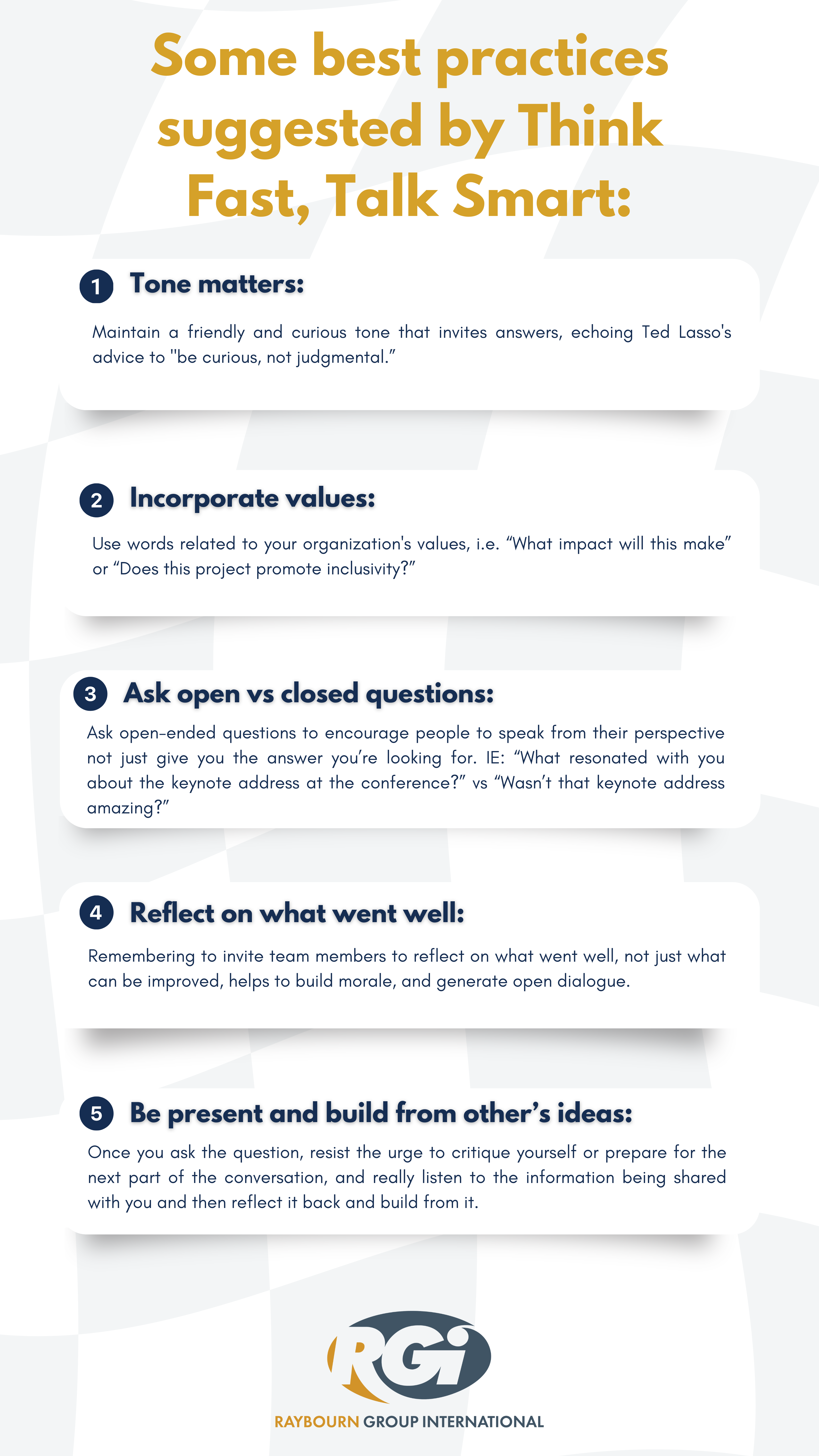Each month a member of the RGI team listens to a podcast and offers insights into the content and how it relates to associations.
Think Fast, Talk Smart: Episode 123. Why Curiosity is Communication’s Secret Weapon
Listening time: 24 minutes
Link: https://open.spotify.com/episode/7CyUbH2NlVcgIiKSAvsusv?si=a9516dc4e0864b79
Each time I start working with a new group of people, whether they are colleagues, new board members, or volunteers, the darts scene from Ted Lasso is top of mind.
Ted Lasso is a character from the eponymous show about an American football coach who moves to England to coach – er – the other kind of football, and his wisdom often transcends the soccer field. For me, his most valuable lesson is: “Be curious, not judgmental.”
In a memorable scene from the series, Ted Lasso challenges his boss’s ex-husband, Rupert, to a game of darts with a high-stakes bet. As the darts fly, Ted surprises everyone with his skill and shares a lesson he learned from Walt Whitman: curiosity trumps judgment. Those who judge miss out on understanding and growth (and in this case, they also lose the bet).
The podcast Think Fast, Talk Smart breaks down this idea in Episode 123, Why Curiosity is Communication’s Secret Weapon, hosted by Matt Abrahams and Debra Schifrin. As you are serving or leading a board for your association you quickly learn that the board room is a microcosm of its own, where differing ideas, personalities, and backgrounds can sometimes lead to disagreements, misunderstandings, and stalemates.
Think Fast, Talk Smart suggests that the key to being a good communicator, and therefore a good leader, is to ask more questions and be curious about those around you. According to organizational psychologist Bob Sutton, “Leaders who ask more questions are perceived as better leaders, have better data to make decisions, and people like them more.”
Abrahams and Schifrin recommend starting by assessing how much time you spend telling people things versus asking questions in meetings. The podcast emphasizes that question-and-answer time in meetings should be a two-way street, with leaders asking their teams as many questions as possible.
The hosts are quick to point out that curiosity requires bravery. It requires you to give up control of the conversation, and you may not always know what answers you will receive. Their advice is to do it anyway, be brave, ask the questions, and be open to the answers! Questions play a crucial role in building relationships, as co-host Debra Schifrin points out: “If you’re asking questions, you’re signaling to the other person that you value them. You’re taking time to listen to their answers.”

My favorite piece of advice is the “killer last question”: at the end of the conversation ask, “Is there anything I didn’t ask you that you think is important?” The most important part of this comes after you ask the question, you have to wait, and it might be uncomfortable. According to Schifrin, a veteran NPR reporter, nine out of 10 times the person will say, “I don’t think so.” And then you wait, again. Often, they will then say the most interesting thing of the whole conversation.
This short yet powerful podcast encourages us to approach life with an open mind and a willingness to learn. So, let’s embrace curiosity in and out of the boardroom, celebrate differences in our organizations, and remember that there’s always more to discover beneath the surface.

Nicole Brandt
Nicole Brandt joined RGI in 2024 as Executive Director. She has a BA in Interactive Media and Graphic Design and a Certificate in Non-Profit Management, as well as 5 years of experience in the association management space. Her expertise is working to activate and implement strategic plans, thereby advancing the organization's goals to fruition.

